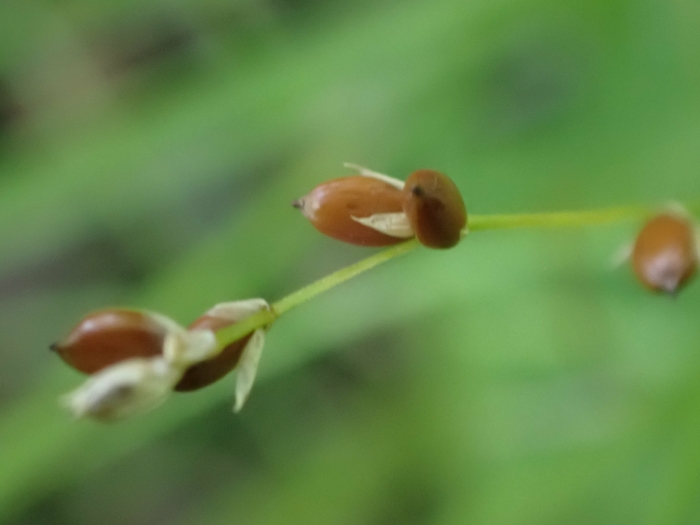Softleaf Sedge
(Carex disperma)
Softleaf Sedge (Carex disperma)
/
/

Mary Krieger
CC BY 4.0
Image By:
Mary Krieger
Recorded By:
Copyright:
CC BY 4.0
Copyright Notice:
Photo by: Mary Krieger | License Type: CC BY 4.0 | License URL: http://creativecommons.org/licenses/by/4.0/ | Rights Holder: Mary Krieger | Publisher: iNaturalist | Date Created: 2022-08-29T15:07:47-07:00 |








































Estimated Native Range
Summary
Carex disperma, commonly known as Softleaf Sedge, is a perennial herb native to boreal and cool temperate regions, including Alaska, Canada, the contiguous United States, and across Eurasia. It thrives in wetland habitats such as bogs, fens, wet meadows, and moist forest understories. This sedge typically produces thin, nodding stems that can reach up to 24 inches in length, emerging from a network of branching rhizomes. The leaves are flat, green, and very narrow, contributing to a fine-textured appearance. The inflorescence consists of 2 to 4 small, rounded spikes that are not particularly showy but add subtle interest to the plant’s form.
Softleaf Sedge is valued for its ability to thrive in moist to wet conditions, making it an excellent choice for rain gardens, wetland restoration projects, and as a ground cover in shaded, damp areas of the garden. It prefers partial to full shade and requires consistently moist soil, often found in its natural wetland habitats. While it is not known for aggressive roots or serious disease problems, it can spread in ideal conditions and may need to be managed to prevent unwanted naturalization. Softleaf Sedge is also used in traditional basket weaving and other crafts by indigenous peoples in its native range.CC BY-SA 4.0
Softleaf Sedge is valued for its ability to thrive in moist to wet conditions, making it an excellent choice for rain gardens, wetland restoration projects, and as a ground cover in shaded, damp areas of the garden. It prefers partial to full shade and requires consistently moist soil, often found in its natural wetland habitats. While it is not known for aggressive roots or serious disease problems, it can spread in ideal conditions and may need to be managed to prevent unwanted naturalization. Softleaf Sedge is also used in traditional basket weaving and other crafts by indigenous peoples in its native range.CC BY-SA 4.0
Plant Description
- Plant Type: Grass
- Height: 0.8-1.5 feet
- Width: 0.5-1 feet
- Growth Rate: Moderate
- Flower Color: N/A
- Flowering Season: Spring, Summer
- Leaf Retention: Evergreen
Growth Requirements
- Sun: Full Sun, Part Shade
- Water: High
- Drainage: Medium, Slow
Common Uses
Erosion Control, Low Maintenance, Water Garden
Natural Habitat
Bogs, fens, wet meadows, and moist forest understories in boreal and cool temperate regions
Other Names
Common Names: Soft-leaved Sedge, Two-seeded Sedge, 가는사초, Short-Leaved Sedge
Scientific Names: , Carex disperma, Carex blyttii, Carex dominii, Carex gracilis, Carex inops, Carex misera, Carex nakaii, Carex tenella, Carex tenella var. brachycarpa
GBIF Accepted Name: